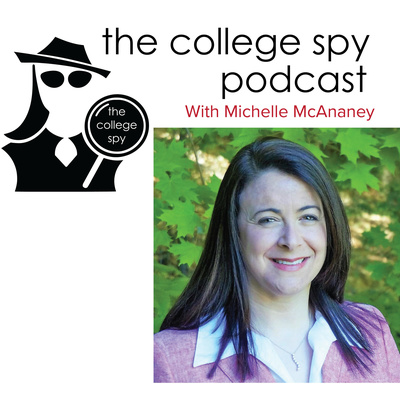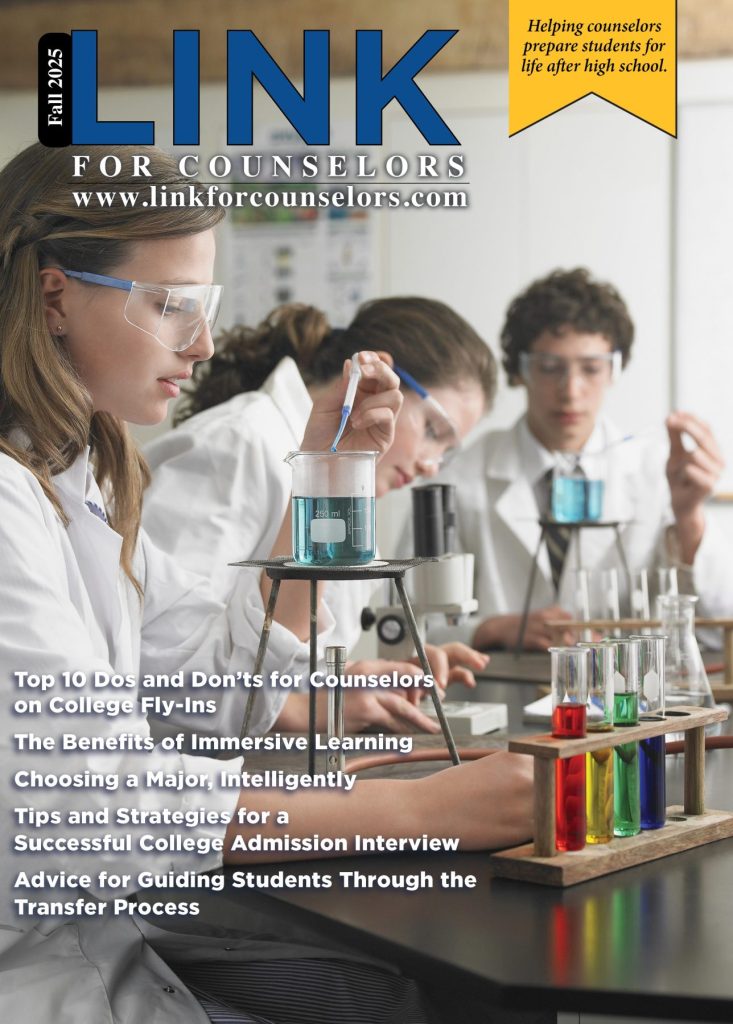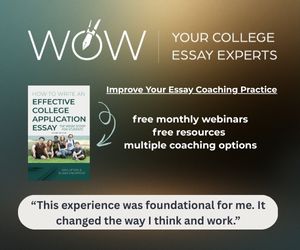As high schoolers, we spent huge amounts of energy understanding our high school environments. We sought to understand how our peers operated; how to fit in; how to excel; how to be liked; how to fulfill our academic aspirations; and how to operate within the rhythms and structures that outline the high school experience. This is just as true today.
And then for students who continue into a college degree program, they can find themselves in a baffling and difficult transition. Many high schoolers have expectations regarding the college experience that are different from reality. These expectations can ultimately make the transition into collegiate environments much more challenging and exacerbate emotional strain, disappointment, frustration, and more.
It’s important that high schoolers develop realistic ideas of the college experience so that, when they arrive, they are prepared to thrive from orientation to graduation. As a counselor, you have unique opportunities to help prepare your students for what they might encounter when they enter their college years.
The College Experience Will Push Your High School Students to Develop
Obviously (but sometimes contrary to fanciful expectations), the college experience is about increasing one’s education. College environments are designed to propel growth, both academically and individually. As individuals develop and progress through growth stages throughout their lifetime, they are exposed to increasingly complex and demanding environments.
The collegiate environment will often demand from its students an increase in exertion, focus, performance, and more compared to high school. It will also expose students to bigger and deeper questions about their core identities, how they approach relationships, what they need, and what they aspire to.
These kinds of questions and challenges are necessary for individuals to advance through those developmental stages. This process can be difficult, demanding, and uncomfortable. It’s important that high schoolers are aware they might experience hardship during college, but that engaging with that hardship is the only way to grow.
Attending College Includes a Range of New Choices and Responsibilities
For most students, college is an environment that lowers the safety rails, so to speak. Farther from the direct supervision of parents or other authority figures, high schoolers often find increased leeway to make decisions they may not have had the opportunity to make during their younger years.
Of course, balanced against those new liberties are increased responsibilities and expectations. Whether that may look like more autonomy and less support in the classroom, the responsibilities and realities that come with living more independently, or the time management required to be involved in social clubs or sports – college comes with it a host of responsibilities and freedom that can be helpful for students who are ready to manage them but harmful for students who aren’t prepared.
College Environments Include Different Types of Diversity
For many students, college won’t look or feel like the environments or communities in which they were raised. In many cases, this can be a good thing. College often exposes students to an increased spectrum of diversity, worldviews, origin stories, cultures, and more.
Diversity is a forefront value and priority for many college campuses across the nation. This can be an important reality to prepare students for before they arrive. Depending on a high schooler’s personal background and previous experiences with facets of diversity, this can affect high school students in different ways.
Oftentimes it is a very positive experience that teaches individuals about how to effectively navigate differences between themselves and those that belong to different demographics. Sometimes, however, this can be difficult or jarring for high schoolers who weren’t adequately prepared to encounter much higher levels of diversity.
On the flip side of that experience, sometimes an individual from a strong cultural heritage or background that attends a college devoid of familiar individuals or cultural representations can also struggle with their college experience. Likewise, members of minority groups that attend campuses with student bodies that are largely homogeneous may also struggle to relate to their peers and faculty. These possibilities and more should be shared with high schoolers before they enter a college environment.
The College Atmosphere Isn’t What They Show On TV
A large percentage of the inaccurate or outdated college stereotypes floating around in society today can be attributed to depictions of college life or experiences on TV and in movies. Why college is so often portrayed so differently than reality is a convoluted and perhaps fruitless question. Nevertheless, for high school students that enter college with starry-eyed ideas of what awaits them there, these depictions are quickly proven wrong and those students often experience a degree of disappointment and deflation.
As a high school counselor, you can help students better understand what they may actually experience during their college careers and how to separate the incorrect depictions from reasonable expectations.
Academic Performance at College Affects Professional Opportunities Post-College
Students who enter their college educations without an appropriate respect for their college education and the degree they are pursuing can end up wasting time, flunking classes they can’t later remove from their transcripts, having to pay for extra semesters, dropping out of school, or ultimately jeopardizing career moves they may have wanted to make in their futures.
Students can self-sabotage themselves by not taking their college academics seriously. It’s important for your high schoolers to understand how college performance might affect their career opportunities down the road.
Especially for students who have aspirations of pursuing competitive career paths like becoming lawyers, getting into med school, applying for high-level corporate or government jobs, or pursuing a career in academics or research, their college transcripts will remain a part of their applications long into their career.
High schoolers that aren’t aware of how that reality could affect them and their ability to pursue the career they want to pursue often regret the choices they make in college and wish they could redo them later in life. Helping them understand this reality before they reach college orientation can help them achieve the careers they dream of.












